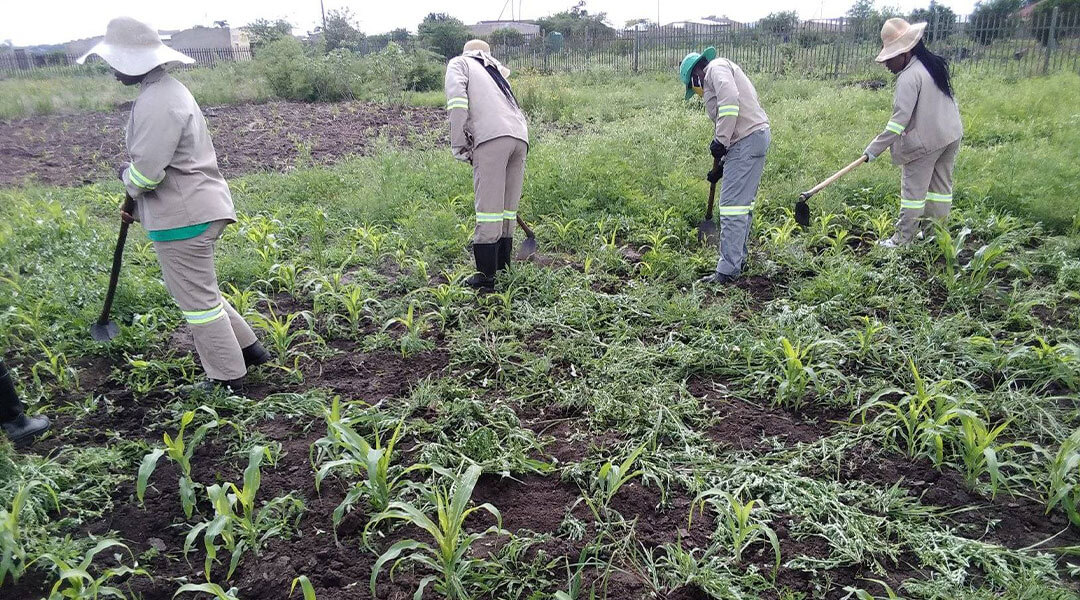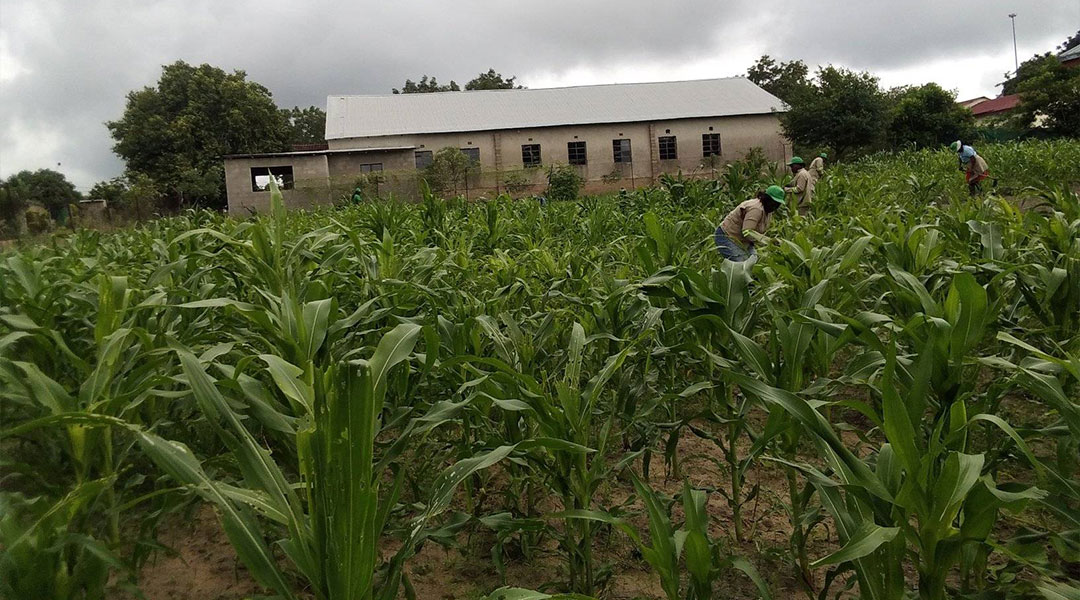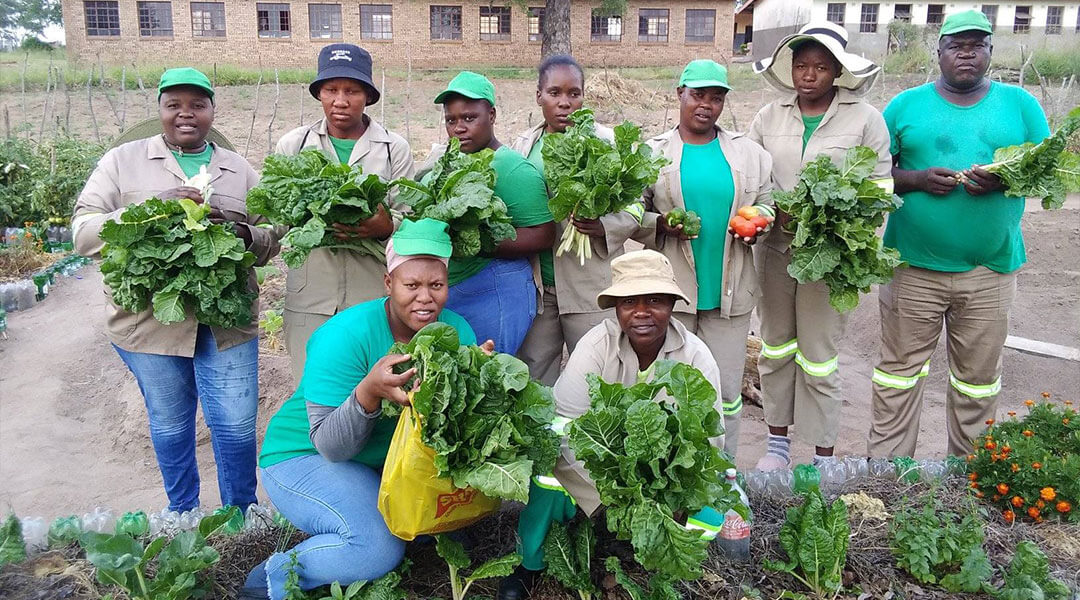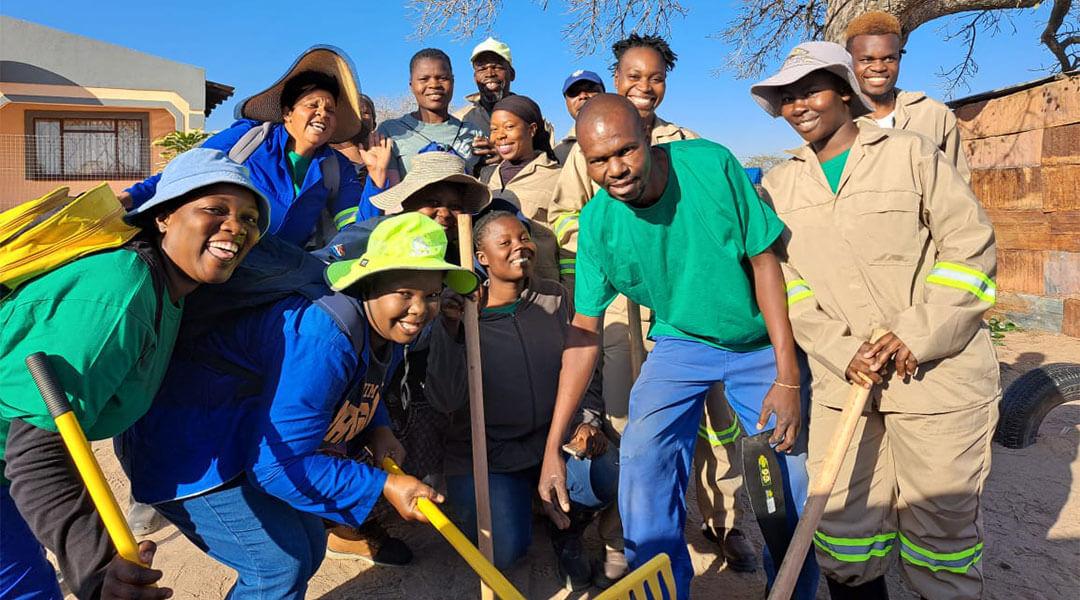Sabi Sand Pfunanani Trust & African Conservation Trust Advancing Food Security in Bushbuckridge Municipality with the Social Employment Project

Project Overview
- The project – managed together by the NPOs Sabi Sand Pfunanani Trust & African Conservation Trust- is providing employment to 500 persons from the Bushbuckridge Municipality. More than half (52,1%) of the municipality’s 128 862 economically active people are unemployed.
- Participants are working in 30 teams, from the villages of Dixie, Athol, Utah, Lephong, Dumphries B and C, Metsi, Lillydale, Newington C, Justicia, Mabaruhle and Huntington.
- 60 unemployed graduates were recruited as team leaders and administrators.
- The employment benefits a further 2,940 indirect beneficiaries (family/household members of participants) and supports several community institutions (schools, creches, old age homes) with produce.
Watch the Video for the introduction of the project in its early stages here – Social Employment Project

Social Employment
Unemployment is recognised as the single biggest cause of poverty in South Africa.
Launched under the Presidential Employment Stimulus, the Social Employment Fund (SEF) is providing short-term work opportunities to some of the most impoverished, marginalised and/or disadvantaged communities across South Africa.
A core pillar of the Social Employment project is working for “social good,” which is work that provides social value, supports Sustainable Development Goals and improves the quality of life in communities.
African Conservation Trust (ACT) is one of the Strategic Implementing Partners (SIPs) of the project, and together with 27 other non-state actors, is providing 50,000 job opportunities under the SEF.
The SEF programme is overseen by the Department of Trade, Industry and Competition (DTIC) and managed by the Industrial Development Corporation (IDC).

Promoting Food Security
Since the start of the project in September 2022, the 30 SSPT/ACT teams have developed and/or expanded more than 350,000 m2 of maize and vegetable gardens – a phenomenal boost to food security in the region. In addition to homestead gardens, garden produce supports community centres such as schools, Early Childhood Development Centres, old age homes and churches.
Halalisani Sithole, team leader for Huntington 24 explains, “Almost 90% of community members of the areas/sites we visited all want to have gardens. Some even call us, or come to our homes to tell us how deep they want gardens and that motivates us a lot. It also shows us how important it is to society and the change it is going to make to peoples’ lives.”
Gardens are established using agroecological (permaculture) practices, which advocate farming in harmony with nature, incorporating practices such as companion planting, mulching and compost, rather than chemical pesticides and fertilizers.
The project also promotes heirlooms and open-pollinated seeds which can be saved and regrown year after year. By March 2023, representatives from each team will have attended a four-day agroecological training course, to ensure that these skills remain in their communities long after project completion.

New Technology
In addition to paper-based records, the project is piloting new digital applications (apps) for daily attendance and reporting. Using the KwantuGo mobile App, each team member is signed in and out of work using biometric authentication (facial recognition); this ensures that each participant paid by the project is fully present and accounted for, for the full day. An online Kwantu version is used by the administration team to onboard all participants, monitor their attendance and hours worked and pay their wages.

Serving Their Communities
Over and above their workdays, the Bushbuckridge SEF participants have recorded more than 7,000 volunteer days since September 2022 – giving back to the project and their communities. The volunteer activities vary by workgroup, chosen by the participants themselves based on the many needs their communities may have.
Teams have donated their time to repairing roads, maintaining schools, cleaning pension pay points and collecting litter, to name a few. In the village of Metsi, participants have been clearing a walking path used by school children and residents who are vulnerable to criminals who shelter in the thick bush.
Whilst in Utah, participants often assist elderly and vulnerable community members, helping with cooking and cleaning and other household chores. Many other community members are assisting voluntarily and the pride in their work is palpable.
“If we take time to take care of people, we can transform whole communities. You never know how you can change someone’s life by showing him or her that you care”. Ellem Lubisi – Huntington
“Through this project community can walk through the shortcut road to school free because it’s clean and able to see people from a distance. The visiting point where [the] Team maize garden is now clean and the Mobile Clinic that they use, the premises and yard are impressed by the cleanness. [B]efore nurses would not work for some time due the thickness and dirtiness of the community area”. Happy Mnisi – Team leader for Team 16 Metsi – speaking about their bush clearing and volunteer work.

What the Project Means to Participants
- On a basic level, the SEF is providing a stipend to community members, helping them to put food on the table and meet basic daily demands.
- On an emotional level, participants who were previously unemployed, benefit from a sense of purpose, from participating in meaningful work and assisting their fellow communities.
- An estimated 20% of the country’s population, is currently facing severe food insecurity and up to 1 in 4 one child in four under the age of six years is stunted due to chronic malnutrition in South Africa. Gardens are helping to reduce vulnerability to hunger and growing a variety of vegetables also provides a diversity of vital nutrients, supporting health and long-term nutrition.
- Participants save money by not having to purchase from the stores or make money from selling surplus produce. A 10m2 square garden yields approximately R10 value per square metre to the owner; by extension, the creation of 35 HA gardens is R3,5 million value back to communities.
“We believe and now see that the number of vulnerable [community members] is now decreasing each day just because of the work we do as team 29.” Khensani Mongwe

Summary of Key Milestones
- More than 150 people trained in agroecological training practices from the northern and central communities – training for the remaining communities are planned in Feb/March.
- 356,490 m2 (35,65 HA) of the homestead and community food gardens worked. (Equivalent to 17,824 gardens of 20m2 in size).
- 81,426 m2 (81 HA) of invasive vegetation cleared.
- 5,231 m2 of erosion control work conducted, including gabions and road repairs.
- 7,000 voluntary days assisting fellow community members.




0 Comments